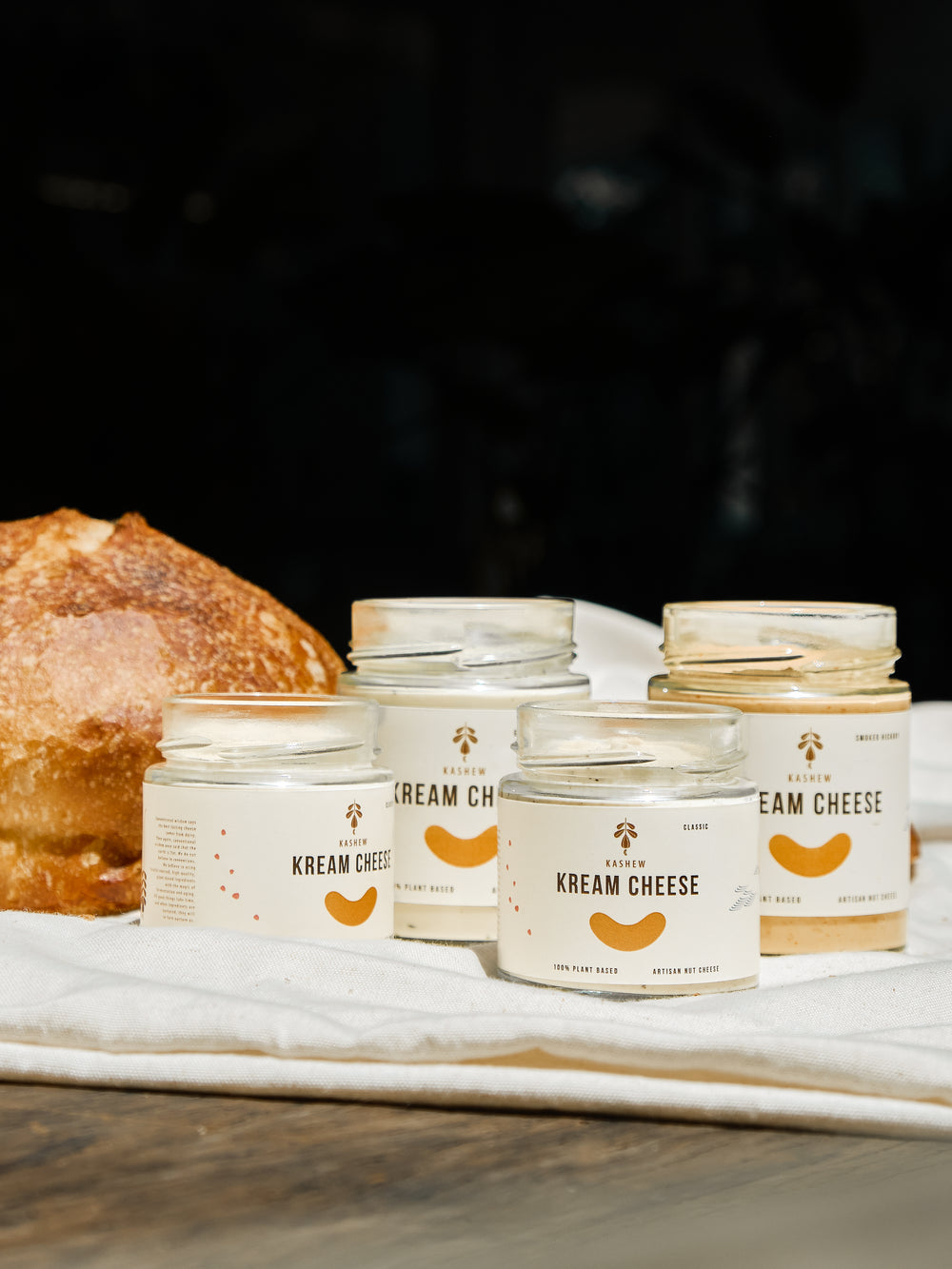A Healthy Gut, A Clear Mind: How Plant-Based Fermented Cheese Protects Mental Well-Being
If you think diet only affects weight or digestion, science is now uncovering a fascinating connection: the gut and the brain are tightly linked through a “highway” known as the gut–brain axis. This means that what you eat every day can directly influence your mood, focus, and even sleep quality
1. The Gut–Brain Axis: Your Body’s “Hotline” Between Stomach and Mind
- Your gut is home to tens of trillions of bacteria and yeasts, working like a natural factory to produce vitamins, beneficial fatty acids, and neurotransmitter-like compounds.
- Remarkably, around 90% of serotonin — the “feel-good” hormone — is made in the gut, not the brain.
- A diverse and healthy microbiome sends positive signals to the brain, helping reduce anxiety, sharpen focus, and improve sleep.
- Conversely, diets high in sugar, ultra-processed foods, and unhealthy fats disrupt the microbiome, cause inflammation, and negatively impact mood.
2. Why Fermented Foods Are a Key to Better Health
International studies show that naturally fermented foods—like yogurt, kimchi, or miso—are rich in probiotics (beneficial bacteria) and prebiotic fibers. Together, they act as the “logistics team” and the “food supply” for your gut microbiome, restoring the balance between good and harmful microbes.
When probiotics thrive, they:
- Suppress the growth of harmful bacteria.
- Reduce inflammation in the body.
- Support serotonin production, promoting feelings of happiness and relaxation.
In simple terms, fermented foods don’t just aid digestion—they also indirectly improve mood, sleep quality, and mental health.
3. Kashew Cheese: Plant-Based Probiotics from Whole Foods
- 100% organic cashews: Packed with fiber, magnesium, and heart-healthy fats, providing energy for both gut bacteria and nerve cells.
- Naturally fermented for days: Builds deep flavor while supplying live probiotics for better digestion.
- No dairy or artificial additives: Reduces risks of inflammation and digestive discomfort often linked to animal dairy.
- Rock salt seasoning: Rich in potassium, magnesium, and zinc, supporting nerve function and muscle relaxation.
4. Eating for Both Gut and Mind
To support a thriving microbiome and nervous system:
- Eat a diverse range of plants: Vegetables, fruits, whole grains, legumes, and fermented foods feed beneficial microbes naturally.
- Add Kashew Cheese to everyday meals:
- Whole-grain toast with Kream Cheese, rocket leaves, and sliced tomato.
- Leafy green salad with Aged Cheese, avocado, and pumpkin seeds.
- Fresh fruit served with a small portion of Kashew Cheese.
- Limit ultra-processed foods and refined sugar: Helps protect the microbiome and prevent harmful bacteria from overgrowing.
When your gut microbiome is strong, you’ll not only digest better but also feel clearer, calmer, and more energized. Starting with simple probiotic-rich foods like Kashew Cheese can bring positive changes from your gut, to your brain, to your overall sense of happiness.
References:
+ Sender, R., Fuchs, S. and Milo, R. (2016) ‘Revised estimates for the number of human and bacteria cells in the body’, PLoS Biology, 14(8), e1002533.
+ Cryan, J.F. and Dinan, T.G. (2012) ‘Mind-altering microorganisms: the impact of the gut microbiota on brain and behaviour’, Nature Reviews Neuroscience, 13(10), pp. 701–712.
+ Mayer, E.A., Knight, R., Mazmanian, S.K., Cryan, J.F. and Tillisch, K. (2014) ‘Gut microbes and the brain: paradigm shift in neuroscience’, Journal of Neuroscience, 34(46), pp. 15490–15496.
+ Clapp, M., Aurora, N., Herrera, L., Bhatia, M., Wilen, E. and Wakefield, S. (2017) ‘Gut microbiota’s effect on mental health: The gut-brain axis’, Clinical Practice, 7(4), pp. 987.



Leave a comment